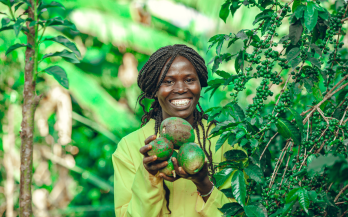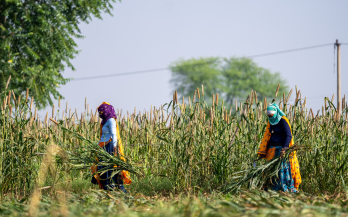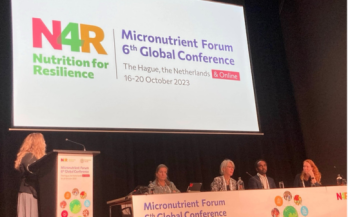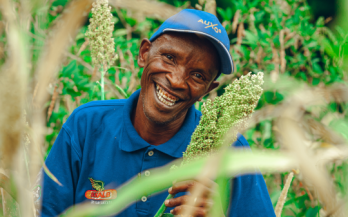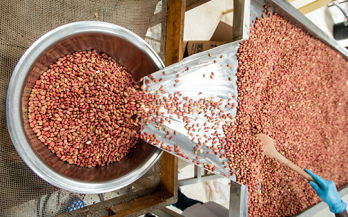In 2021, more than 3.1 billion people in the world – or 42 per cent of the global population – were unable to afford a healthy diet. Tea workers and farmers, predominantly women, often contend with high rates of malnutrition due to diets lacking essential nutrients. Healthy Diets for Tea Communities is a public-private collaboration between the Global Alliance for Improved Nutrition, the Ethical Tea Partnership and eight leading tea companies which aims to promote healthy diets in tea supply chains in India, Malawi, and Kenya. Between 2020 and 2023, the programme reached 734,075 people, increasing the percentage of women in the programme eating minimally diverse, nutritious diets – 5 out of 10 food groups – in all three countries. The documents below summarise the programme’s impact in Assam, Kenya and Malawi.
The youth leadership initiative is a platform for young individuals aged 18-25 to actively participate in food systems decision-making. This initiative aims to provide opportunities for young people to have a voice and influence in the decisions that shape food systems, especially national food systems pathways.
The youth leadership initiative is a platform for young individuals aged 18-25 to actively participate in food systems decision-making. This initiative aims to provide opportunities for young people to have a voice and influence in the decisions that shape food systems, especially national food systems pathways.
This facilitator handbook is a key resource in this process, offering structured support and inspiration. The handbook provides you with suggested plans and sessions but is designed to be used flexibly, with each facilitator selecting the most relevant exercises for them and adding their own content and expertise, and on the group, context, time and mode of delivery you have available. Activities in this guide are suitable for groups of 20 - 30 young people and can be delivered both online an in person.
The purpose of this assessment tool is to gather data from vendors, consumers, and key stakeholders in traditional markets to identify food safety challenges and perceptions. This information helps design effective behaviour change interventions to enhance food safety practices. The tool includes methods for comprehensive data collection through interviews, observations, and discussions.
This report demonstrates that investing in nutritious food value chains allows investors to achieve significant gender impact. The hope is that more funding will be unlocked for nutritious food value chains, particularly for small and medium enterprises (SMEs), which critically lack access to financing in emerging markets.
Environmental factors impact human health and nutrition through various pathways, and these impacts can be felt disproportionately by already vulnerable groups like women and children.
A symposium on local Dutch and international experiences of multisectoral food security and nutrition initiatives was held at the Micronutrient Forum 6th Global Conference, on 16 October 2023 in The Hague (The Netherlands). Three case studies - one each from Ghana, Ethiopia, and The Netherlands - were presented.
Biofortification (also known as nutrient enrichment) of staple crops, is a cost-effective and sustainable agricultural technology that enhances the quantity, bioavailability and bioaccessibility of micronutrients, with the aim of reducing micronutrient deficiencies. From 2019-2022, GAIN and HarvestPlus coordinated the Commercialisation of Biofortified Crops (CBC) Programme, which sought to scale up the production and consumption of biofortified foods (i.e., wheat, maize, cassava, rice, pearl millet, and beans) through commercial pathways in six countries in Africa and Asia. The programme used a variety of strategic scaling pathways to ensure commercialisation (e.g., increased production and availability of surplus for sale in markets), where aggregation was a key step. The objectives of this paper are to: (1) document the types of aggregation models employed by the CBC programme and their challenges, and (2) make recommendations for improving biofortified crop value chains to better achieve commercialisation. The insights in this paper are based on a desk review of CBC programme documents and semi-structured interviews with programme implementers.
To ensure the success of LSFF, governments can establish and strengthen national mandatory fortification standards as well as regulatory frameworks that ensure access to high-quality fortified foods across the entire population. Strong regulations also help ensure a level playing field for fortified food producers where all are held to the same standard.






